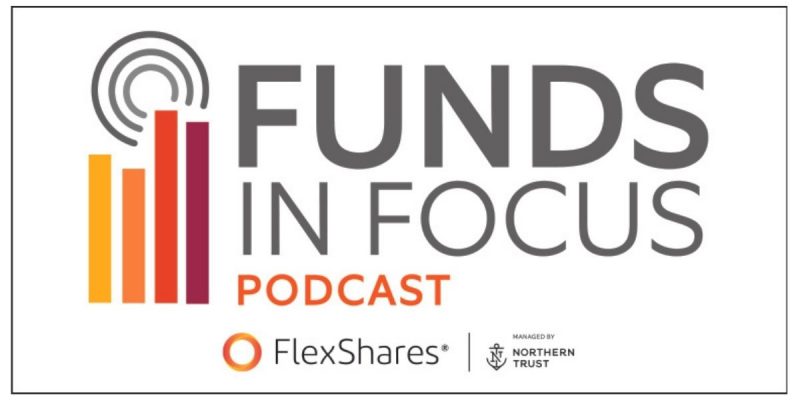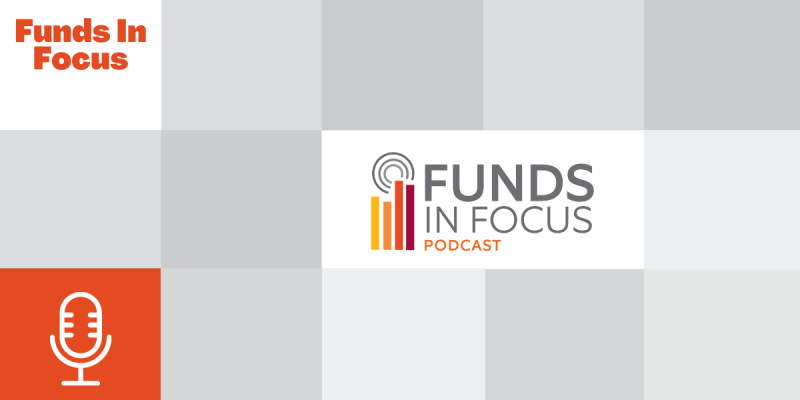Podcast: Play in new window | Download | Embed
The data is in and investors are seeing the clouds of inflation roll in which for many investors is something they may not have anticipated or ever experienced. This may be creating stress for you as you help them navigate this rising storm in their portfolios and day-to-day lives. Learning what tools are available and effective can help you address your client’s concerns with inflation and may drive engagement with your clients.
In this episode, David Partain and Christopher Huemmer sit down to talk about the impact that inflation is having on the markets and how advisors can utilize the appropriate portfolio tools to help their client’s achieve their long-term goals. We highlight of the issues causing inflation and how investors can guard their portfolios against it.
Chris discusses:
- What investors can expect for inflation and interest rates in 2022
- Looking at inflation tools from a short, medium, and long-term perspective
- Increasing interest rates and the appropriate utilization of targeted duration
- Importance of locality when investing in real assets, infrastructure, and real estate
Connect With [Christopher Huemmer]:
Connect With FlexShares:
About Our Guest:
Christopher Huemmer is Senior Vice President and Senior Investment Strategist for FlexShares Exchange Traded Funds (ETFs). He is responsible for equity strategy and provides equity product development, investment strategy, and related ETF product expertise to the team. He levers the firm’s portfolio management and construction skillsets and engages with client-facing partners to identify and develop innovative ETF investment strategies.
Prior to being named Senior Investment Strategist for ETFs, Christopher worked at Zacks Investment Research for 12 years, where he served as Director of Index Services, focusing on quantitative index strategies to be replicated in ETFs as well as other structured products. Christopher received a BS degree from Cornell University and is a CFA charter holder. He is a member of the CFA Society of Chicago and the CFA Institute.
Notes & Definitions
When speaking about the Fed Funds Futures Index curve during the podcast, the source is Bloomberg as of March 3, 2022. The Fed Funds Futures Index is used by banks and fixed-income portfolio managers to hedge against fluctuations in the short-term interest rate market. They are also a common tool traders use to take speculative positions on future Federal Reserve monetary policy.
When speaking about upcoming expectations for the Consumer Price Index (CPI) during the podcast, the source is Northern Trust as of March 3, 2022. The CPI is released monthly by the Bureau of Labor Statistics. The CPI calculates the cost to purchase a fixed basket of goods, as a way of determining how much inflation is occurring in the broad economy.
When speaking about the reflation trade during the podcast, the source is Northern Trust as of March 3, 2022. A reflation trade is a bet that certain sectors of the market perform well immediately after a recession or economic crisis. It’s essentially a bet on cyclical stocks at the beginning of a market recovery.
When speaking about historical data concerning the Consumer Price Index (CPI) during the podcast, the source is Bureau of Labor Statistics and is as of March 1, 2022, based on the months of March, April, and June 2021.
When speaking about Brent Crude during the podcast, the source is Bloomberg and is as of March 1, 2022. Brent Crude may refer to any or all of the components of the Brent Complex, a physically and financially traded oil market based around the North Sea of Northwest Europe; colloquially, Brent Crude usually refers to the price of the ICE Brent Crude Oil futures contract.
Treasury Inflation-Protected Securities, or TIPS, may provide protection against inflation. The principal of a TIPS increases with inflation and decreases with deflation, as measured by the Consumer Price Index. When a TIPS matures, you are paid the adjusted principal or original principal, whichever is greater.
When speaking about gold correlation to inflation during the podcast, the source is Northern Trust and Bloomberg as of December 31, 2021, utilizing monthly data of a correlation time series representing one-year rolling values from June 30, 1983 through December 31, 2021. Correlation, in the finance and investment industries, is a statistic that measures the degree to which two securities move in relation to each other.
Duration is a measure of the sensitivity of the price of a fixed-income investment to a potential change in interest rates.
The spot price is the current price in the marketplace at which a given asset—such as a security, commodity, or currency—can be bought or sold for immediate delivery.
Cost of carry refers to costs associated with the carrying value of an investment. These costs can include financial costs, such as the interest costs on bonds, interest expenses on margin accounts, interest on loans used to make an investment, and any storage costs involved in holding a physical asset.
Roll yield is a type of return in commodity futures investing. It is driven by the difference in the price of shorter-dated, closer to maturity commodity contracts and their longer-dated counterparts.
Residential REIT is a real estate investment trust that owns and operates rental property.
Industrial REITs are companies that own and manage real estate properties that are used for manufacturing, production, storage, and distribution of goods.
Retail REITs own and manage retail real estate and rent space in those properties to tenants.

